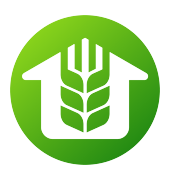Having a healthy and balanced and also thriving yard depends on numerous variables, and among the most essential is the sort of dirt you use. Soil is the foundation for your plants, as well as it’s essential to select the appropriate one for your yard to make sure optimal growth. Below, we will talk about the various types of dirt and also what to consider when picking dirt for your residence yard.
1. Comprehending the Different Types of Soil
Dirt can be divided into 5 major classifications: sandy, loamy, clay, peat, and chalky. Sandy dirt has bigger particles, drains pipes rapidly, and also can be testing to retain nutrients. Loamy soil is the most ideal as it’s a blend of silt, clay, and sand, making it well-draining, productive, and easy to collaborate with. Clay dirt is dense as well as has poor drain, needing modifications to enhance its fertility. Peat soil is extremely acidic and also not recommended for novices. Milky soil is alkaline, which suggests it has high pH levels, making it ideal for details plants like lavender as well as lilacs.
2. Know your Plants
Various plants have various dirt demands. Acidic caring plants like rhododendrons and also blueberries will need peat-based soil, while veggies like tomatoes and squash will flourish in fertile loamy dirt. Researching the sort of dirt demands for your plants will ensure they obtain the appropriate nutrients and water retention they require.
3. Soil Testing
A dirt test will certainly assist evaluate the soil’s pH levels as well as vitamins and mineral content. Testing your soil will enable you to establish what soil amendments you require to include in your yard. Using natural dirt amendments like garden compost, bone meal, and fish emulsion will certainly improve the nutrients in your dirt.
4. Avoiding Chemical Products
When selecting dirt, ensure to prevent chemical products like fertilizers that can damage the setting and minimize dirt quality. Chemical plant foods alter the natural balance of the soil, decreasing the soil’s capacity to preserve water and also nutrients. Select organic plant foods as well as amendments, which are safe and also environmentally friendly for your yard.
5. Soil Depth as well as Drainage
It’s crucial to consider the depth of soil you require to grow your plants as different plants have various origin needs. Vegetable plants call for a depth of eight to twelve inches of soil. Adequate drainage is also important for plant growth. Poorly draining dirt can create origin rot that could eliminate your plants. You can enhance drainage by adding perlite, sand, or compost.
6. Soil pH Levels
Dirt pH figures out the dirt’s acidity or alkalinity degrees, influencing the availability of nutrients to plant roots. A pH series of 6 to 7.5 is suitable for a lot of garden plants, and you can readjust the soil pH by adding raw material like lime or sulfur.
7. Consider Your Climate
The climate in your location is another crucial variable when selecting dirt. In hot as well as dry locations, pick soil that has greater water retention, like silt. In cooler locations, choose dirt with excellent water drainage and water retention, like loam.
8. Container Gardening
Decide for soil particularly developed for container growing if growing in containers. Container soil is lighter and also has outstanding water drainage, allowing for optimum root development.
9. Top quality Over Cost
When purchasing soil, select high quality over price. Affordable soil might include weeds, insects, and dangerous materials that will hurt your plants. Quality soil is an investment that repays in the future, causing healthier plants that produce even more yields.
10. Soil Maintenance
Regular dirt upkeep is vital to ensure that your plants thrive. Mulching your soil with organic matter like leaves, straw, or timber chips will certainly help regulate dirt temperature level, preserve dampness, as well as prevent dirt erosion. Frequently feeding your soil with natural plant foods as well as amendments will certainly increase its vitamins and mineral web content.
Last Thoughts
Selecting the ideal dirt for your yard is crucial for optimal plant growth and returns. By considering the variables stated over, comprehending your plants’ needs, as well as frequently maintaining your dirt, you can expand a flourishing as well as healthy and balanced garden.











